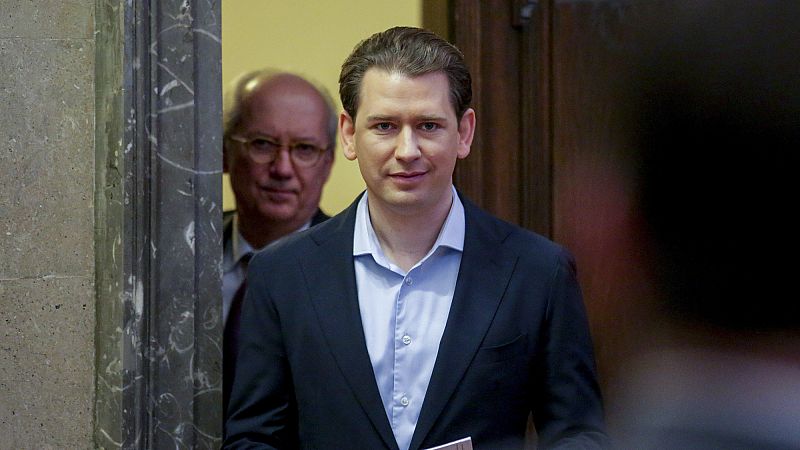AI firm founded by Austrian ex-Chancellor Kurz reaches unicorn status

Tel Aviv-based cybersecurity firm Dream, founded by Kurz alongside entrepreneur Shalev Hulio and cyber expert Gil Dolev, announced a funding round worth $100 million (€105m) on Monday, valuing the company at $1.1bn (€1.05bn).
The Series B round was led by Bain Capital Ventures, while additional investors included Group 11, Tru Arrow, Tau Capital and Aleph.
Founded in January 2023, Dream develops AI-driven cyber defence solutions for governments, seeking to identify and eliminate threats before they materialise.
In 2024, Dream amassed more than $130m (€124m) in annual sales to governments and national cybersecurity organisations.
"Sophisticated cyber-attacks on our critical infrastructure are increasing in both prevalence and complexity," Sebastian Kurz, co-founder and President of Dream, said in a statement on Monday.
“During my time as Prime Minister I saw first hand how these attacks can cause real human damage, and have the capacity to disrupt society at large. By founding Dream, we are on a mission to empower nations against what is the defining national security concern of our era," he added.
The project marked a new step for the ex-Chancellor after he was forced to give up his government role in 2021, over claims linked to corruption allegations.
A new age for cybersecurity
The new funding round for Dream accelerates the development of the firm's Cyber Language Model (CLM) and will also fuel the company's expansion into additional markets.
The firm noted that it would "focus on markets where cyber threats continue to pose significant national security challenges".
Enrique Salem of Bain Capital Ventures will join Dream's board of directors, along with Shlomo Yanai, who currently serves on the board of Philip Morris.
They will join current board members Dovi Frances, Michael Eisenberg and the founders of the company.
AI needed to tackle AI attacks
Experts warn that, as cyber criminals launch more sophisticated attacks using AI technology, governments and firms must employ defensive AI strategies.
For example, AI is now being used to create realistic phishing emails or deepfakes to encourage individuals to share sensitive information.
The total cost of cybercrime, according to an industry group cited by the WEF, jumped from $3tn (€2.9tn) in 2015 to $6tn (€5.7tn) in 2021.
Statista estimates that this total will reach $15.6tn (€14.9tn) by 2029.
Organisations spent approximately $200bn (€191bn) globally on cybersecurity products and services in 2024, according to McKinsey.
Yesterday

